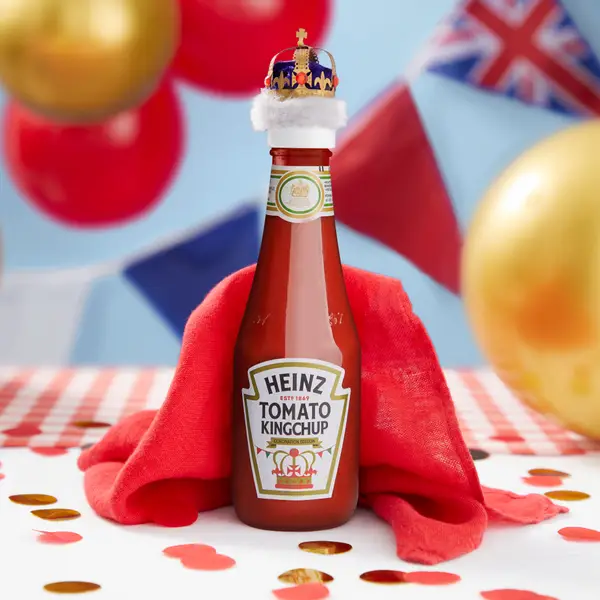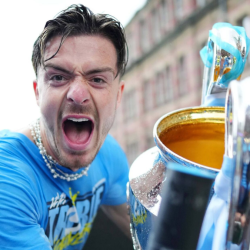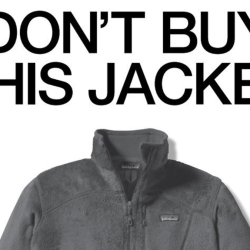Using patriotism in branding requires careful consideration of the target audience, cultural context and authenticity.
But by approaching it in the right way, brands can leverage national pride to create positive connections.
Even if sport leaves you completely cold, it’s hard not to get caught up in the wave of patriotic zeal that washes over the country during a major international tournament. The euphoria and adrenalin make us feel better about ourselves, each other and the country itself. It’s no wonder that some brands want to connect to that strong emotional response.
In the past, patriotism hasn’t always united us — different individuals have had varying interpretations of what it means (think of Brexit). While some consider their attachment to their country as integral to their identity, loyalties and political beliefs, others harbour concerns, dreading its potential to morph into risky forms of nationalism. But patriotism and nationalism are two different things. Former President of France, Charles de Gaulle, explained it well when he said, ‘Patriotism is when love of your own comes first. Nationalism is when hate for people other than your own comes first.‘
So there’s quite a lot for brands to think about, if they want to capitalise on the strong emotional pull of patriotism, without alienating or excluding segments of their audience who may have differing views or cultural backgrounds.
Kingchup with your fries?
Some of the benefits include conveying a sense of trust, reliability and commitment to the nation (think of ‘Made in Britain’). In competitive markets, national pride can be used as a unique selling proposition. By highlighting a brand’s local heritage or commitment to supporting the nation, it can differentiate itself from competitors, attracting consumers who prioritise those values. Patriotism in brands can offer comfort, too — Mr Kipling leans into traditional family values, Fullers London Pride references a proud history dating back hundreds of years.
There are potential pitfalls beyond polarisation, however. If patriotism is used merely as a marketing tactic without genuine alignment with the values it represents, it can come across as insincere and opportunistic. To unlock the Britishness of a brand, the commitment needs to run deep. There are many brands that pay homage brilliantly and whenever there’s an opportunity. Heinz created Tomato Kingchup for King Charles III’s coronation, for example. Colin the Caterpillar wore his special gold crown. Cadbury created a coronation range. It was Britain’s moment in the sun, so why not?
By consuming or using these products, we felt connected in the hand, heart and mind to our fellow countrymen and women. Royalist or not, it gave us all a sense of belonging.

Pride and modern relevance
These issues are not confined to Britain, of course. Bluemarlin has worked with Cisk, the national beer of the Maltese islands, since 2018. Many of the liveries and campaigns we have produced — including a 90th anniversary limited-edition and, more recently, a total brand refresh — have looked to the unique exuberance of the islands for inspiration. There are a few reasons for this.
Countries evolve — and so the brands that align with national sensibilities should too.
Malta was a melting pot before the term was ever coined. You can hear it in the language (a blend of Italian, Arabic and English), taste it in the food, see it in the art, buildings and landscape. Cisk is part of the fabric of Maltese life: people gather for al fresco drinks at the end of the working day, to chat and relax before heading home. But as younger people drink less frequently and move away from old customs, it was important for Cisk to establish new relevance.
For the strategic designer and brand owner the question is: how do you make the product live in the head, heart and mind of today’s consumer? Malta is a progressive Mediterranean and culturally exuberant place. While we didn’t want to downplay the historical integrity, it was necessary to modernise it and speak to new consumers. Cisk as a brand embodies the mantra of openness and willingness to adapt — from the quirkiness of its name to the ever-expanding range of products that promise new tastes and experiences.
Our design language merges the modern and the traditional, the expected and the surprising.
We introduced a new dimensional pattern based on the Maltese Cross that serves as a foundation for the whole brand, encapsulating pride in Cisk’s Maltese heritage and modern relevance — subtle but recognisable. The updated packaging reinforces the beer’s premium credentials, and the new identity enhances Cisk’s presence and promise from in-store to on premise, from bottle to glass, from can to canopy, from digital to IRL communications. Cisk’s genius is in its integrity and respect for time-honoured brewing traditions and its inherent curiosity and willingness to adapt. An expression of artful contrast. A tension embraced.
‘Made in’ matters
Country of origin plays a crucial role in consumer decision-making and can serve as a competitive advantage. We might turn to Germany, which excels in the automotive sector, or Japan, which leads in electronic goods, for example. For food and drink, many of us look to France and Italy. For fashion, Paris, London and Milan. For creativity and engineering, the UK.
If you’re going to capitalise on a country of origin, it’s important to have a unique brand story that is relevant to target consumers and the specific category. Take what you can of value from the country of origin, perhaps intrinsic quality or reason to believe, but don’t think of it as a positioning in its own right.
Featured image: Colin the Caterpillar for King Charles III’s coronation































